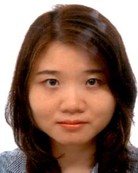
|
Events |
Seminar
Shader Optimisation For Modern Game Engines

Miss Dai Yaqi
ABSTRACT
The research and application of computer graphics shaders appeared at around 1980s then grew rapidly in the early 2000s, after the introduction of modern GPU which could handle programmable shaders. These highly customizable GPU-based mini-programs leaded to an upgrade of quality for computer-generated imagery, promoting a continuous booming of 3d game industry that has even last until nowadays.
Although graphics shaders are quite sophisticated on replicating the reality, they are also becoming heavier and heavier due to the ascending complexity of algorithms and structures, which is not ideal especially for the development of interactive applications because prompt graphical feedback is necessary for these real-time renderers, such as game engines. As a result, it's crucial to figure out how to optimise existing shaders and how to get a reasonable performance without sacrificing too much visual fidelity in a real-time rendering context.
Besides the investigation on custom shader writing and profiling to achieve a balanced result of image quality and frame rate in modern game engines, this study also aims at developing new methods with algorithms for shader optimisation within current rasterization render pipeline and its potential successor, the real-time ray-tracing render pipeline. As a new solution, the latter one introduced a completely different way to generate images on screen and might replace current one in the following decades, although the rasterization one is still playing a dominant role in many industrial applications today, while the curtain has been raised.
A side project is planned and the creation of a 3d demo scene has been launched for the execution of all these tests. Some primary performance profiling results have been generated with several build-in shaders of Unity engine, as the benchmark for the following tests with more custom shaders. These data are collected and categorized based on the hardware resources they consumed in the game-play, and will be compared across multiple game engines including Unity, Unreal Engine and Amazon Lumberyard, on various computers with different hardware specs in the next phase of this study. A research plan with milestones and a time management plan is also enclosed at the end of this report, to provide more details about what is supposed to be done in the following six to eighteen months.
| Date | 1 April, 2021 |
|---|---|
| Time | 2:00 pm |
| Speaker | Miss Dai Yaqi |
| Zoom meeting ID | 982 0888 8754 |

